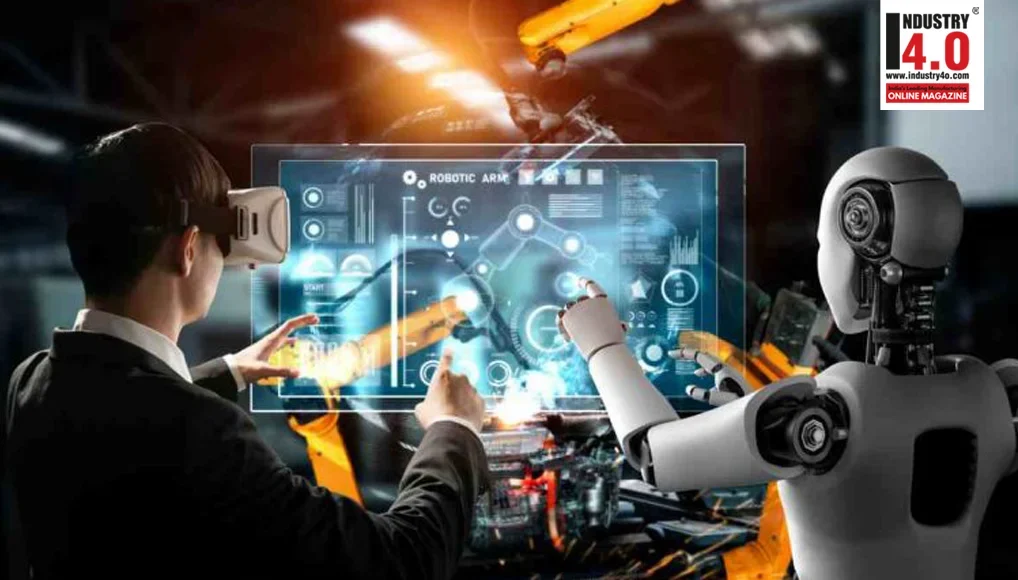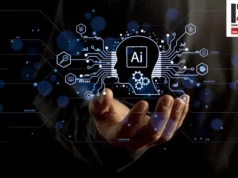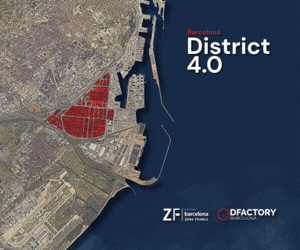Elevating Industries: The Impact of Generative AI on Business and Innovation
What is Generative AI?
Generative AI, a subfield of artificial intelligence (AI), represents a cutting-edge discipline that focuses on the development of algorithms and models capable of generating novel and coherent data across various domains. At its core, generative AI leverages advanced neural networks, deep learning techniques, and sophisticated probabilistic models to mimic human-like creativity and problem-solving abilities. Unlike traditional AI systems that primarily focus on tasks such as classification or prediction, generative AI goes a step further by producing original content, be it in the form of text, audio, images, or even entire datasets.
The foundation of generative AI lies in its ability to learn from vast amounts of existing data and, subsequently, generate new data that exhibit similar patterns, styles, or characteristics. This process often involves the utilization of techniques like Generative Adversarial Networks (GANs), Variational Autoencoders (VAEs), and Transformers. These models have demonstrated remarkable capabilities in applications ranging from natural language generation and image synthesis to music composition and beyond. In this technical exploration, we will delve into the underlying principles, core technologies, and emerging trends in the realm of generative Ai, unveiling its potential to revolutionize various industries and domains.
Generative AI, in its core essence, represents a technological wonder deserving of our contemplation, let’s delve into its captivating potential.
A brief history of Generative AI
A concise history of generative artificial intelligence (AI) reveals its transformative journey. In the early 2010s, AI-generated both excitement and fear. Headlines warned of AI taking over jobs and economies collapsing. However, AI’s limitations soon became evident, showing it lacked the creativity to match human ingenuity. It excelled in specific tasks but fell short of true human-like intelligence.
Recent developments, however, are changing this narrative. GPT-3, a standout from last year, continues to impress with its text, code, and image generation capabilities. And MidJourney has emerged, creating AI-generated digital art that defies randomness, hinting at AI-generated content that makes sense. Numerous startups are leveraging generative AI to automate creative tasks, gaining attention from venture capitalists. As we explore generative AI’s journey, we’ll dive deeper into these innovations and their impact on our interaction with AI.
Now, let’s understand how generative AI works with an example. In the domain of autonomous vehicles, generative Ai plays a pivotal role in enhancing safety and decision-making. Imagine a self-driving car navigating complex urban environments. To operate effectively, the car relies on a combination of sensors, cameras, and lidar systems that continuously gather vast amounts of real-time data about its surroundings. Generative Ai is employed to process this data and generate predictive models of the car’s environment. This involves using techniques like convolutional neural networks (CNNs) and recurrent neural networks (RNNs) to analyze the data and create a dynamic representation of the road, traffic, and potential obstacles. As the car advances on its route, the generative Ai continuously updates and refines these predictive models, allowing the vehicle to make split-second decisions for safe navigation. For example, it can anticipate the movement of pedestrians, predict the behavior of other vehicles, and identify potential hazards, all based on its learning from the extensive dataset.
Future of Generative AI
The future of generative AI holds exciting prospects for advancing the capabilities of AI systems. One key avenue of development lies in the creation of increasingly complex neural network architectures and the scaling up of existing models. Researchers are exploring models with billions of parameters, pushing the boundaries of size and complexity. This scalability enables generative Ai to capture finer nuances, generate more realistic outputs, and exhibit enhanced context-awareness. Whether it’s in natural language processing, image generation, or scientific simulations, these advanced models promise to revolutionize various domains by enabling AI systems to operate with a deeper understanding of the intricacies of the data they handle.
Future developments in this area will make generative AI systems more versatile and adaptable, as they will require less data to excel in a wide range of tasks. Achieving this will involve refining meta-learning techniques and designing neural architectures optimized for rapid adaptation. As generative Ai continues to evolve in these directions, it is poised to become a cornerstone of innovation across industries, from personalized healthcare and autonomous vehicles to content creation and scientific discovery.
Achieving modernization with Generative AI
Unlocking the potential of generative AI is at the forefront of modernization efforts in the realm of hybrid cloud management. An automation-first platform powered by robust AI capabilities offers a transformative pathway for organizations embarking on their hybrid cloud journey. Through innovative strategies like code generation, businesses can streamline IT processes and breathe new life into legacy applications, fostering greater organizational agility.
One compelling approach involves harnessing the capabilities of code generators. Engineers can craft prompts that steer generative Ai toward creating code tailored to their specific needs. The beauty of this approach lies in the agility it offers—engineers can then review, customize, and swiftly deploy the generated code, expediting the development of applications and services.
Generative AI isn’t merely a time-saver; it’s a game-changer for developers and IT operators alike. By leveraging generative Ai, writing code becomes more accessible, with AI-generated recommendations based on natural language inputs simplifying the process. This fusion of human expertise and AI-driven automation is the driving force behind modernization efforts in the hybrid cloud landscape, empowering organizations to achieve new levels of efficiency and innovation. As we delve deeper into this exciting domain, we’ll explore the transformative impact of generative AI on modernization and the limitless possibilities it offers for the future.
Scalability and Security
When exploring the realm of automating IT Operations, one cannot overlook the critical role of integrating generative AI technology into security operations (SecOps). Research has shown that the incorporation of generative AI into SecOps offers organizations a powerful arsenal for efficiently identifying and addressing security anomalies, all while proactively detecting and mitigating potential threats. The overarching objective here is to harness the capabilities of AI-driven automation to bolster an organization’s security posture and ensure compliance with industry-specific regulations.
It’s important to recognize that security and compliance are multifaceted aspects that vary across industries. Within this intricate landscape, generative AI emerges as a valuable tool for pinpointing anomalies within data and linking them to various sources, such as raw code and historical business incidents. Take, for instance, the use of generative AI tools to support audit compliance procedures and meticulous documentation aligned with relevant audit standards. Once the evaluation is complete, these adept generative AI tools step in, flagging any inappropriate words or phrases for human agents to evaluate further. The amalgamation of generative AI into SecOps not only enhances security but also streamlines compliance efforts, ensuring organizations remain resilient and protected in an ever-evolving digital landscape.
What will Generative AI of the future look like?
Envisioning the future of generative AI opens a door to unprecedented possibilities. As technology continues to evolve, generative AI is poised for a remarkable transformation, unveiling new horizons of capability and application. Here’s a glimpse into the potential shape of future generative AI:
- Elevated Creativity : Future generative AI systems will redefine the boundaries of creativity. They’ll produce art, music, literature, and creative works that seamlessly blend with human creations, making it nearly impossible to distinguish between the two.
- Hyper-Personalization : The AI of the future will excel at personalization, tailoring content and recommendations to the unique preferences of individuals. This level of customization will extend from product suggestions to news articles and even AI-generated virtual companions.
- Real-Time Adaptation : Tomorrow’s generative AI will dynamically adapt to changing contexts and user interactions. It will provide contextually relevant solutions, suggestions, or content in real time, enhancing user experiences.
- Multimodal Mastery : Future generative AI models will effortlessly handle text, images, audio, and video, enabling the creation of immersive and interactive multimedia experiences that captivate users.
- Conversational Expertise : The AI of the future will excel in natural, context-aware conversations. These language models will understand nuances, humour, and cultural references, fostering more human-like interactions.
- Advanced Problem Solvers : Generative AI will tackle intricate problem-solving tasks across diverse domains, contributing to scientific research, aiding in medical diagnoses, and driving innovation in fields like climate science and space exploration.
In essence, the future of generative AI is a vision of AI systems that serve as creative partners, problem-solving companions, and personalized assistants. This exciting evolution holds great promise while also necessitating profound considerations regarding ethics, privacy, and AI’s role in society. It represents a future where technology pushes boundaries and reshapes our world in remarkable ways.
Some Core Technologies in Generative AI:
- Neural Networks:The foundational framework for generative AI, simulating the human brain’s interconnected neurons.
- Natural Language Processing (NLP):Empowering AI to understand, interpret, and generate human language.
- Generative Adversarial Networks (GANs):A competitive duo of networks driving high-quality content generation, often used for images and videos.
- Recurrent Neural Networks (RNNs):Specialized for sequential data generation, such as text, music, and time-series data.
- Transformers:Revolutionizing sequential tasks, especially text generation, with their attention-based architecture.
- Pretrained Models:Starting with pre-trained knowledge, these models fine-tune for specific generative tasks, enhancing performance.
- GPT (Generative Pretrained Transformer):Prominent for generating high-quality text, leveraging transformers and extensive pretraining.
- Reinforcement Learning:Enhancing content quality through trial and error, as models receive rewards or penalties based on generated output quality.
The Emerging Use Cases of Generative AI
- Dynamic Conversational Agents:Generative AI empowers conversational agents, chatbots, and virtual assistants to engage in context-aware, natural conversations, elevating customer support and user interaction.
- Content Generation Mastery:Across text, video, art, and music, generative AI is at the heart of crafting personalized, top-tier content for education, marketing, and entertainment.
- Personalized Healthcare Revolution:Generative AI is transforming healthcare by analyzing patient data to create tailored treatment plans, predict disease risks, and even accelerate drug discovery.
- Autonomous Vehicles:The automotive industry relies on generative AI to enable self-driving vehicles, processing real-time sensor data and making crucial decisions to ensure safe navigation.
- Realistic Simulations:In fields like aviation, healthcare, and military training, generative AI constructs realistic training scenarios and virtual environments for enhanced learning experiences.
- Design and Creative Innovation:From architecture to fashion, generative AI fuels designers’ imaginations, assisting in crafting innovative and bespoke designs and artistic creations.
- Game Development Ingenuity:Game developers harness generative AI to craft in-game content, including levels, characters, and narratives, amplifying gaming’s dynamism and immersion.
In summary, generative AI stands as a pioneering force in the realm of artificial intelligence, heralding an era characterized by innovation and problem-solving. Its fundamental principles, expanding applications, and burgeoning relevance in Saudi Arabia and globally underscore its profound impact on various domains.
Generative AI transcends being a mere tool; it serves as a transformative catalyst. It is revolutionizing sectors like education, content creation, & many more, offering enhanced human-technology interactions, data-driven decision-making, and immersive experiences. However, this remarkable potential necessitates a strong commitment to ethics, data privacy, and bias mitigation as we delve deeper into the generative AI landscape.
As generative AI continues to advance, it promises to reshape our world, unlocking countless possibilities, addressing complex challenges, and nurturing boundless creativity. In the foreseeable future, it will seamlessly integrate into our daily lives, driving progress and exemplifying the synergy between humans and machines. To harness the full transformative potential of generative AI, remaining well-informed, upholding ethical standards, and fostering innovation will serve as our guiding principles on this exhilarating journey.
About HKB Tech – Subsidiary of Bin Dayel Group
As a subsidiary of the legacy leading Saudi company (Bin Dayel Group), established in 1963, which spans multiple sectors including real estate, manufacturing, contracting, investment, and agriculture, HKB Tech has been established as the new technology enabled wing, aligning to Vision 2030.
HKB company specializes in delivering cutting-edge projects in multiple industries spanning multiple sectors including: – AI & Machine Learning – Smart Cities – Internet of Things (IoT) – Robotic Process Automation (RPA) – Conversational AI/ DeepTech – Blockchain development & integration – Metaverse, AR/VR – Cloud Computing – Predictive Analytics – Computer Vision & Image Recognition – Big Data analytics & visualization – Digital Banking / FinTech – BioTech / HealthTech – Sustainability / Net Zero – CleanTech / ClimateTech / GreenTech – Renewables / Wearables – Assurance/Cybersecurity – EdTech & Fit Tech.
HKB Tech is aimed to expand significantly beyond, and contribute to the diversification of the economy helping create a new ecosystem heavily enabled by technology and knowledge in Saudi Arabia.
HKB Tech can be Contacted at :
ABOUT Team HKB :

Mr. Hesham Bin Dayel
Chairman of the Board of Directors,
HKB Tech
Mr. Hesham Bin Dayel is the Chairman of the Board of Directors for HKB Tech, a subsidiary of Bin Dayel Group, a leading Saudi company established in 1963. He previously served as the Chief Executive Officer (CEO) for Bin Dayel’s industry sector for over 25 years, significantly contributing to the organization’s growth. Aligned with Saudi Arabia’s Vision 2030, HKB Tech was created to diversify the economy beyond traditional sectors. This strategic initiative is geared towards establishing a robust ecosystem empowered by technology and knowledge, playing a vital role in Saudi Arabia’s economic diversification and development.
Mr. Hesham Bin Dayel @ Social Media :

Dr. Khulood Almani
Founder & CEO,
HKB Tech
Dr. Khulood Almani is a prominent Saudi figure, and a globally recognized AI and technology thought leader, and a professor & expert in digital transformation in AI systems, entrepreneurship, innovation & start-ups, with over 15 years of experience in the field.
Dr. Khulood Almani is the Founder and CEO of HKB Tech, Dr. Khulood Almani leads a company that specializes in delivering cutting-edge projects in multiple industries including AI, Smart Cities, Fintech, Cybersecurity, BioTech, HealthTech, EdTech, CleanTech, and ClimateTech.
Dr. Khulood Almani is also :
Dr. Khulood Almani Professional Experience
Dr. Khulood Almani @ Social Media :














